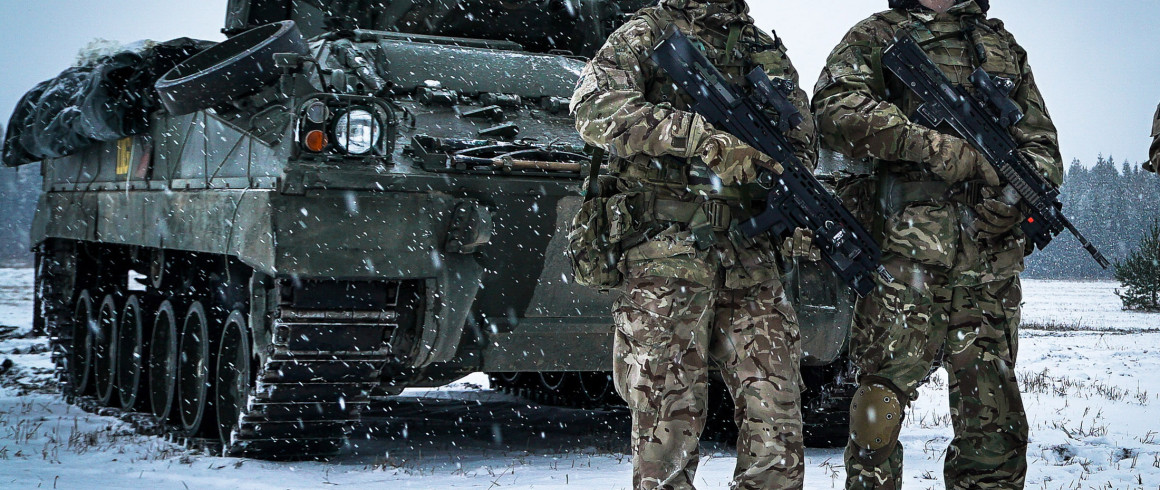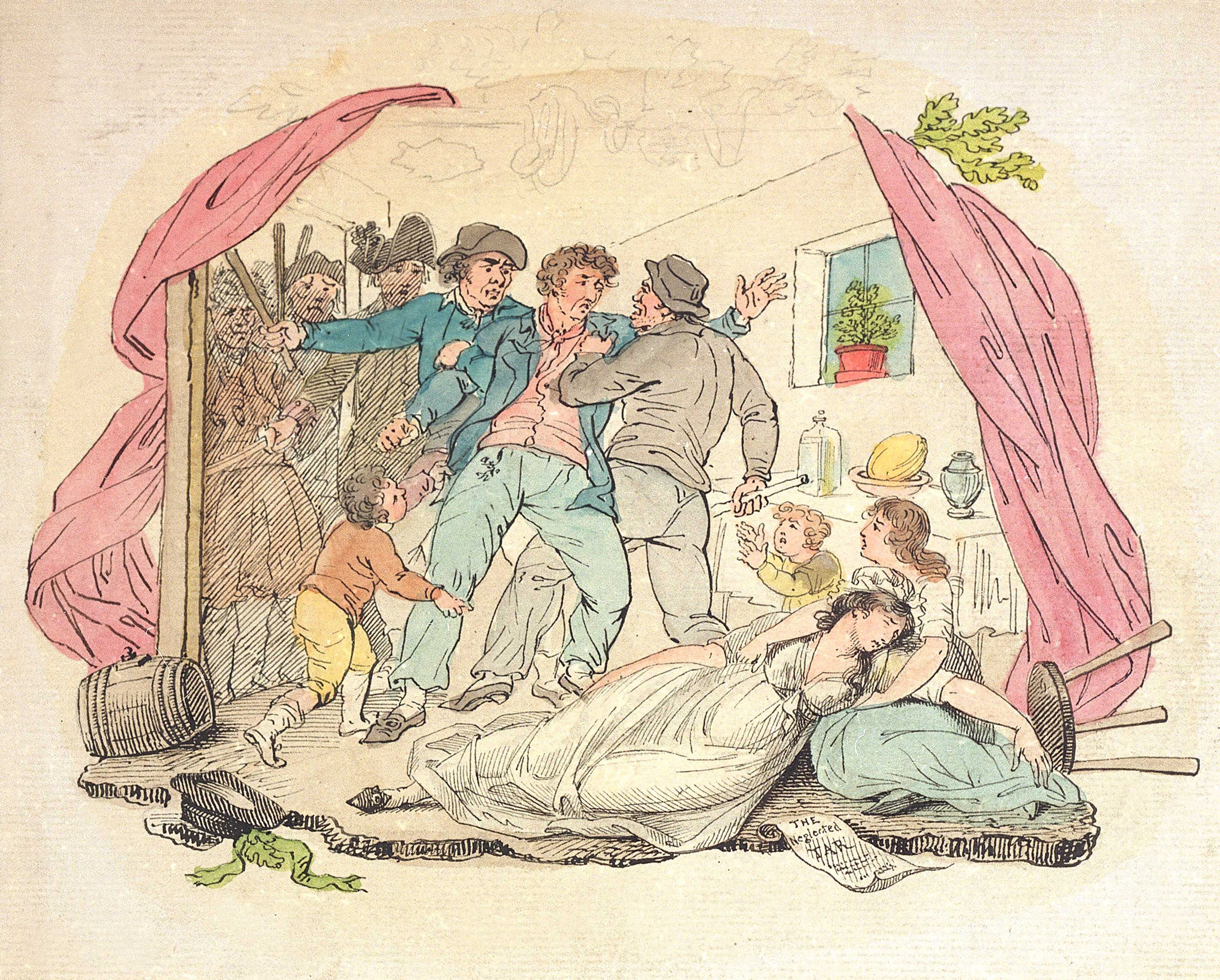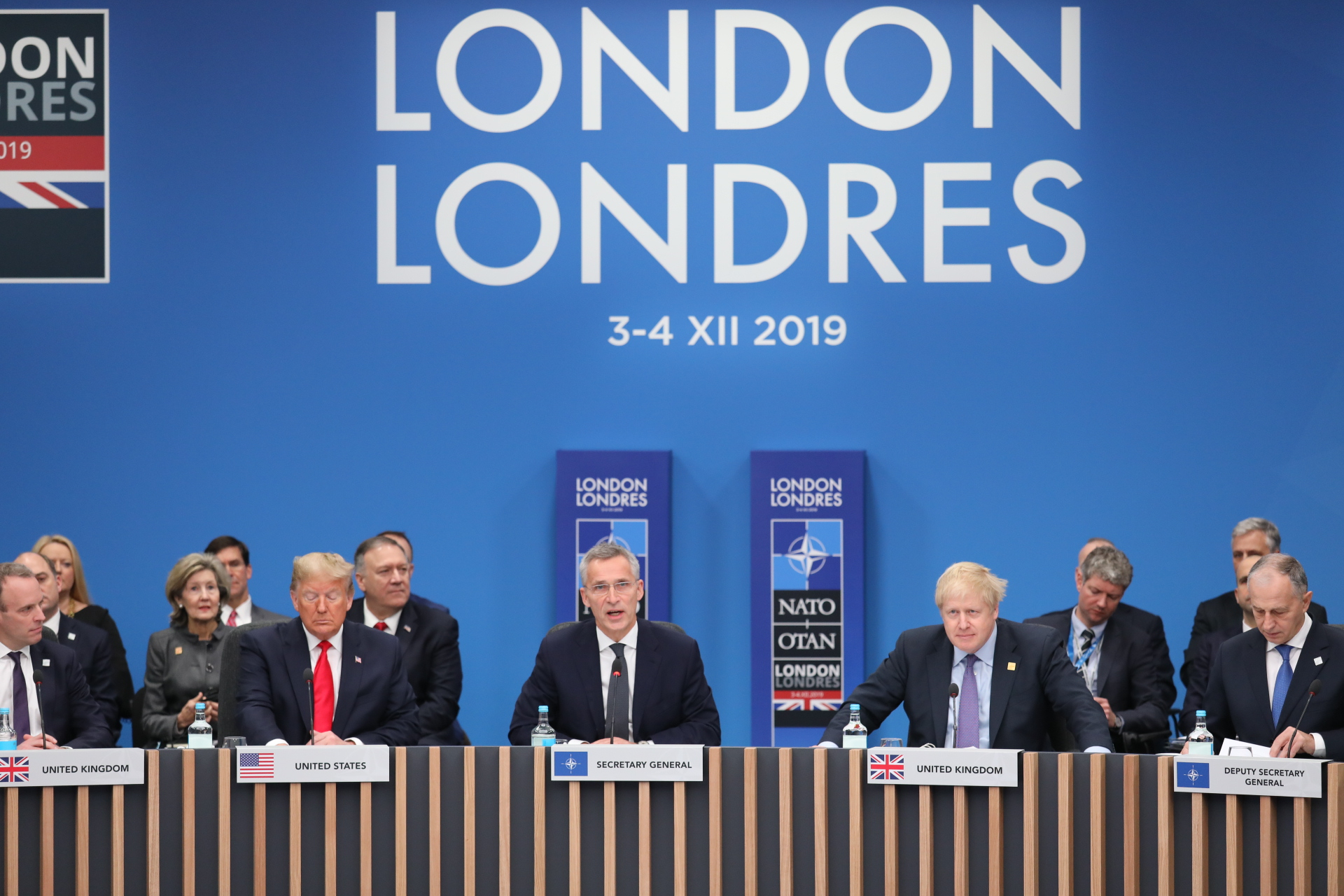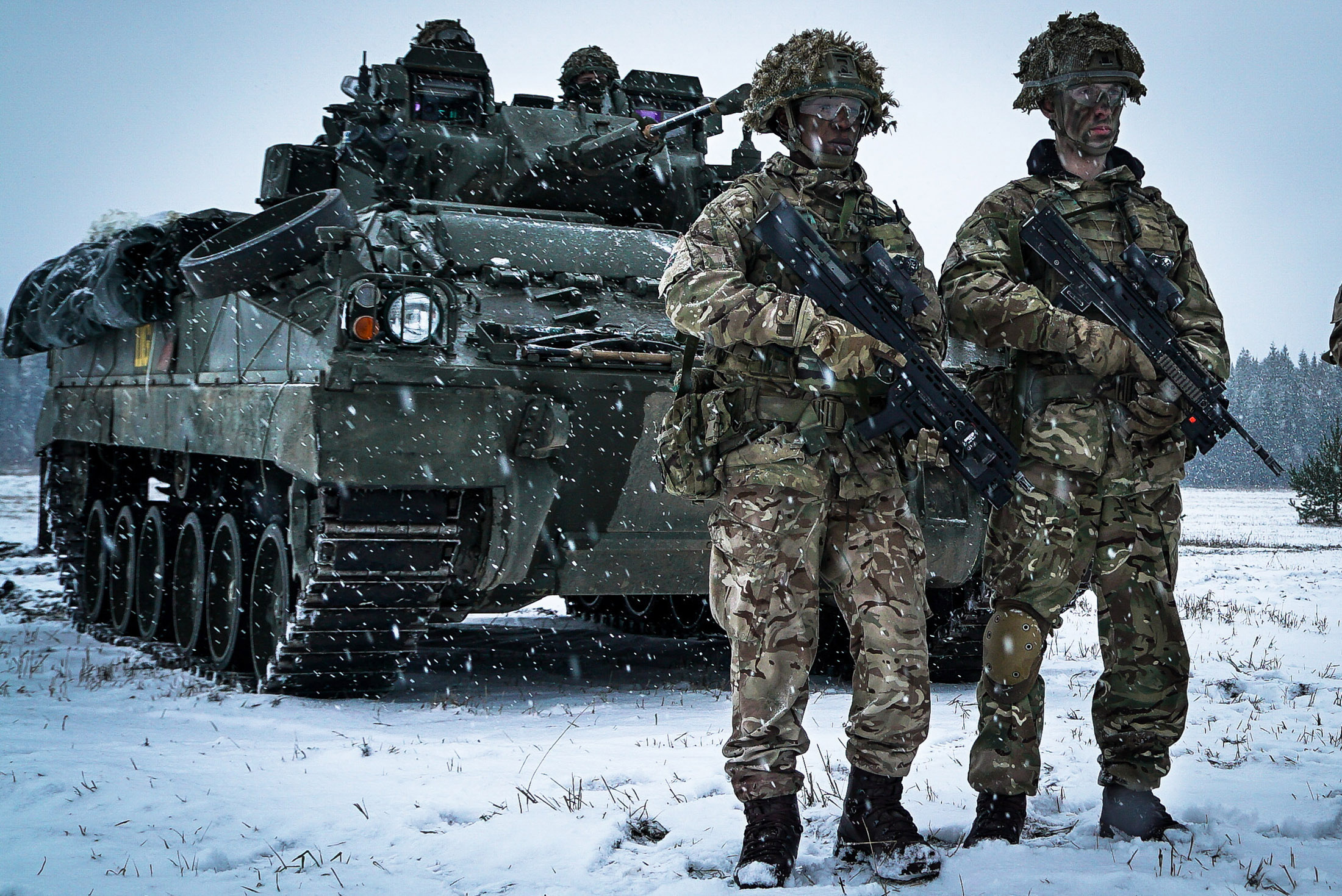June 2024 - Dr Conor Farrington (2004), By-Fellow of Hughes Hall and Chief of Staff of SATAVIA
Since the countdown to election day began back in May we have been 'treated' to a series of gaffs, errors, controversies and policy proposals - but few have captured the imagination, and perhaps, are as important as the future of the British Armed Forces.
This month Dr Conor Farington (2004), By-Fellow of Hughes Hall and Chief of Staff of SATAVIA, looks at the problems facing the future of our nation's security and the dilemmas that the next government will have to reckon with.
Passing the torch?
Some years ago, while attending Harvard’s John F Kennedy School of Government as a visiting researcher, I came across JFK’s famous words carved into a stone gatepost on campus: Ask not what your country can do for you - ask what you can do for your country.
The site seemed well suited to the sentiment, for Kennedy’s exhortation has the ring of a direct appeal to youth, a heartfelt summons to protect America’s tomorrow through selfless action today. Even before his untimely death in 1963, however, thousands of US personnel had already been shipped to Vietnam, with millions more to come. For more than 50,000 of these young Americans, what they did for their country was simply to die in battle. A grim reality lies behind Kennedy’s shining formulation, a reality in which youth goes out to sacrifice itself for the old left behind. ‘War,’ said Franklin D. Roosevelt, ‘is young men dying and old men talking.’ In the final analysis, what you can do for your country might well end up being what your country can do to you.
Against this kind of backdrop, motivational messages delivered to young people can seem somewhat less inspiring. At a recent commencement address at Harvard, Ambassador Nicholas Burns urged Kennedy School graduates to ‘find the collective vision, faith and courage’ to do something about urgent challenges such as climate change, artificial intelligence, and war in Ukraine, Gaza, and elsewhere. As the US ambassador to China and with previous appointments at NATO and elsewhere, Burns has arguably earned the right to speak out on the predicaments facing humanity; and of course commencement speeches, as a genre, are designed to pass wisdom from experience to youth. With war looming, though, such instructions might be perceived as a surrender of sorts, a throwing up of the hands; not so much a passing of the torch from one generation to the next, as a passing of the buck instead.
But what if the young refuse to accept it? Recent YouGov data suggest that 30% of British 18 to 40-year-olds would refuse to serve in the armed forces even if the UK was facing imminent invasion, most commonly because of unwillingness to “fight for the rich and powerful” – which can be read as a proxy for older people. (British millionaires are on average 55 years old; members of parliament, 50; CEOs, 55.) Only 11% of the 18-40 group said they would actively volunteer, and only 23% said they would accept being conscripted – figures that also help to explain the ongoing recruitment challenge faced by the armed services, with the army now smaller in numbers than at any time since the Napoleonic era.
Unwillingness to enlist might well diminish when confronted with a real rather than hypothetical threat, as seen on previous occasions. (In 1933, six years before the outbreak of World War Two, the Oxford Union famously passed the motion that “This House would not in any circumstances fight for King and Country”.) Nevertheless, there can be no doubt that the increasingly real possibility of large-scale conventional war in Europe has yet to translate into universal enthusiasm to take up arms in the country’s defence.
Intergenerational divides on defence are critically important, since weaknesses in national security – including potential challenges around recruitment – create existential risks for all other public and private activity. If the government were to find itself unable to rapidly expand the armed forces in opposition to a resurgent Russia, and if a Trump-led America were to renege on its NATO Article 5 commitments ensuring collective defence, Britain’s safety in a conventional war could then depend largely on the capacity and willingness of European allies. And this is a scenario in which historical experience is discouraging.
It is important to note that disinterest in defence cannot be equated with disinterest in global conflict per se. Britons of all ages, including young people, are strongly in favour of Ukraine’s armed resistance to Russia, for instance – a resistance that, ironically, has relied heavily on conscription. Additionally, young people express strong views on the current Israeli-Palestine conflict, with 43% of people aged 18-24 sympathising more with the Palestinian than the Israeli side, compared to 16% for those aged 65 and over. A common factor in young people’s support for Ukraine and Palestine may be a desire to support causes seen to embody a principled stance against more powerful enemies or ideologies. The difference between young and old thus becomes one of political viewpoint, with – very broadly - younger, more left-wing people supporting causes opposed to (e.g.) capitalism and ‘Western’ globalism, and older, more right-wing people supporting causes that tend to reinforce a rules-based international system.
Both perspectives are prone to contradictions, the left because its socially liberal views are often vehemently opposed by those it champions (e.g. LBTQIA and Hamas), and the right because its promotion of rules-based approaches often allows for convenient exceptions (e.g. US covert operations and regime change). Nevertheless, since public opinion often plays a role in the formulation of foreign policy, these varied viewpoints cannot simply be dismissed as incoherent, knee-jerk responses without further ado. In a Europe moving rapidly from ‘post-war’ to ‘pre-war’, indeed, the effort to establish some kind of national unity is more vital than ever.
Is there anything that can be done to try to reach more common ground between young and old? In the lead up to the 2024 General Election, as noted in Dr Kate Parsley’s May 2024 blog in this series, different solutions have been proffered by the Conservative and Labour parties. Each party, as might have been expected, has approached the challenge from opposite directions. In line with similar schemes in place across Scandinavia and elsewhere, the Tories have proposed the introduction of twelve months of mandatory national service, with all 18-year-olds able to apply for military placements or volunteering in community service one weekend a month. Speaking about the scheme, Prime Minister Rishi Sunak noted that ‘citizenship brings with it obligations as well as rights.’ Labour, meanwhile, has proposed lowering the voting age to 16 on the basis that (in Sir Keir Starmer’s words) ‘if you can serve in your armed forces then you ought to be able to vote’. The Conservative plan would see around 30,000 experienced reservists created each year at the cost of around £2.5B, whereas Labour’s plan would see the addition of ~1.5 million people to the electorate, countering the tendency of British politics to pander to age. In essence, it could be said, the Tories want to make young people more like old people, whereas Labour wants to ensure old people take more account of young people.
Labour has described the Conservative national service plan as ‘desperate’ and ‘unfunded,’ and the scheme, unsurprisingly, is unpopular with young people. (67% of 18-24 year olds strongly oppose its introduction, compared to 28% of 65+ year olds.) In other words, the introduction of national service is unlikely in the event of a Labour victory. Indeed, the proposal itself may make a Labour landslide still more probable, by prompting higher turnout in younger age groups who are more likely to vote Labour but less likely to vote.
Nevertheless, if Sir Keir and his colleagues are victorious, they will still face a population divided by age and opinion in the face of severe and mounting external challenges presented by Russia, Iran, China, and others. Should Russia win in Ukraine and seek to engage further afield, Labour could still opt to introduce a national service scheme, or even conscription to create a new citizen army, as recently called for by the head of the Army, General Sir Patrick Sanders. Drastic policies like this would be wildly unpopular, but might also have the effect of deterring would-be adversaries. Se vis pacem, para bellum, wrote Publius Flavius in antiquity – if you wish for peace, prepare for war. When considering what to do for his country, Sir Keir may soon have to balance the likelihood – and pitfalls – of both.
Dr Conor Farrington (2004) is a By-Fellow of Hughes Hall, Cambridge, which he joined in 2017 while a Senior Research Associate at the University of Cambridge. After his PhD in political science/Latin American studies at Cambridge, he spent over a decade in postdoctoral research on technology and policy, while also serving as an Affiliated Lecturer and supervisor at the Department of Politics and International Studies (POLIS). At POLIS, Conor's teaching focused on British and American politics in addition to constitutional topics related to the House of Lords, on which he continues to publish in journals such as The Political Quarterly. Following his tenure at the university, he moved into the technology industry, and is currently Chief of Staff at a Cambridge-based ClimateTech company, SATAVIA. Conor is also an author and novelist, with three Russian novels published in recent years by Constable/Little,Brown (2021-2024). His next book, a feminist retelling of the Faust legend set in 1840s/1870s Cambridge, will appear in hardback in 2025.





